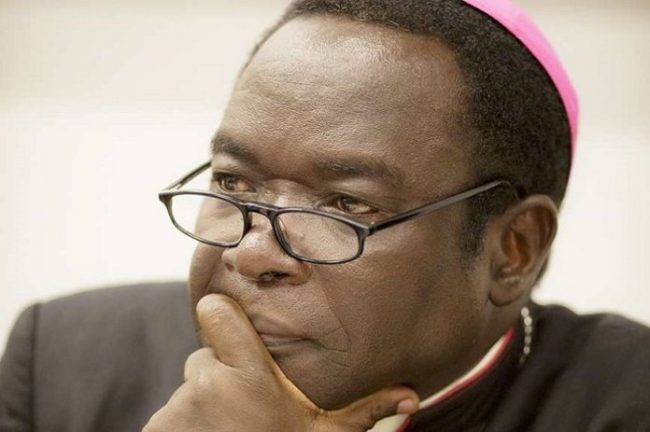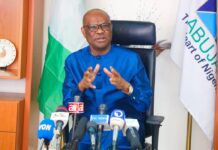By Haruna Salami
The Senate has urged the Central Bank of Nigeria (CBN) to raise the proposed withdrawal of N100, 000 per week for individual and N500,000 per week for corporate bodies in response to public outcry.
The upper chamber also mandated its Committee on Banking, Insurance and other Financial Institutions, to embark on aggressive oversight of CBN on its commitment to flexible adjustment of the withdrawal limit and periodically report outcome to the Senate.
The Red chamber however supported CBN in continuous implementation of transformational payments and financial industry initiatives.
Therefore, the Senate adopted the resolutions after heated debate by Senators on the proposed policy during consideration and adoption of report of its Committee on Banking , Insurance and other Financial Institutions .
The Chairman of the Committee, Senator Uba Sani (Kaduna Central), had in the report argued that the planned Cash withdrawal limit was well conceived by the CBN for transformation of the Nation’s economy and that the action falls within the mandate of the Apex bank as provided for , in section 2(d) and 47 of its extant Act .
During general debate on the report and recommendations later adopted as resolutions, many of the Senators kicked against the timing of the policy , warning that it may lead to mass revolt in the rural areas across the country.
First to kick against it was Senator Ajibola Basiru (Osun Central) , who said the proposed threshold of N100,000 and N500, 000 withdrawal per week for individuals and corporate bodies respectively , was unrealistic .
“Laws are made for people and not people made or created for law . If CBN is acting under section 2(d) and 47 of its extant Act to make life difficult for Nigerians through a policy , as representatives of the people, we need intervene.
“Such intervention from us is to make CBN realise that the proposed Cash withdrawal limits policy is unrealistic and very injurious and detrimental to the well-being of rural dwellers , many of whom are our constituents.
“Report of this committee recommending the policy to us and by extension, to Nigerians through suggestion of flexibility in implementation , is vague , nebulous and means nothing “, he said.
Senator Adamu Aliero ( PDP Kebbi Central)in his own contribution, the picture painted by the committee in its report on the proposed CBN policy, is nothing but an idea picture of what economy should be , which is far cry from what economy is , in reality as far as Nigeria is concerned .
“The proposed CBN policy does not capture the informal sector and very detrimental to the livelihood of rura dwellers who are not into e – banking .
“Public outcry against the policy is too much , requiring serious caution as far as implementation is concerned because Nigeria economy is predominantly rural “, he said .
Senator Adamu Bulkachuwa ( PDP Bauchi North), in his contribution , warned that the proposed policy , if not suspended , may trigger revolt from rural dwellers .
He said recommendations made by the Senate Committee on Banking on the policy which were later adopted as resolutions, made no sense to him.
“Senate committee recommendations on the proposed CBN policy, is nothing but trying to put wool in the eyes of Nigerians “, he said .
Even Senator Orji Uzor Kalu (APC Abia North)who as a member of the Committee, signed the adopted report on the proposed policy , kicked against it in his contribution.
He said : N100, 000 per week for individuals and N500,000 per week for corporate bodies , are too small .
“The N500, 000 per day for individuals l and N3million per day for corporate bodies being implemented in Abia , Lagos , Ogun , Rivers , FCT etc , should be sustained across the country for now “.
Other Senators who kicked against implementation of the policy as planned from January 9, 2023 , were Biodun Olujimi ( PDP Ekiti South), Chukwuka Utazi ( PDP Enugu North ) , Stella Oduah ( PDP Anambra North ) , Ibrahim Hassan Hadeija (Jigawa North East ) etc .
But Senators Yusuf A Yusuf (APC Taraba Central), Degi Eremienyo (Bayelsa East) Francis Alimikhena (Edo North) , supported it in their separate contributions.




